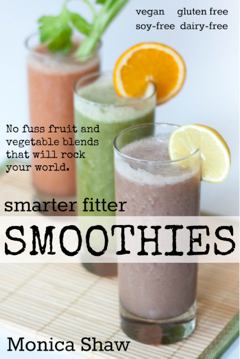Calorie counting – is it the ultimate weight loss solution or the slippery slope towards obsessive compulsive food tracking and Michael Pollan-esque nutritionism*? Maybe it’s both.
The first time I experienced real, consistent success at losing weight was when I started tracking my calories. It was a phenomenal way to keep myself honest and it helped me establish good habits that I still follow to this day. Unfortunately, it also instilled a few bad habits that I’m still trying to shake, such as the irrational worry that an extra walnut here or splash of cream there is going to instantly undo all of my progress.
Despite its somewhat worrying effect on my rationality, I’ve decided to start counting calories again. But this time, my reasons are completely different.
Why am I counting calories?
- I need to gain weight. My kidney infection and its subsequent effects on my appetite and ability to keep food down caused me to lose a lot of weight in a short period of time. The change was noticeable enough that people actually commented on how “skinny” I looked. First of all, I don’t want to be “skinny” – I want to be fit and strong. Secondly, I don’t want to be one of those girls that people worry about.
- I’m having a hard time putting on the pounds. How is this possible? I’m eating pie, taking cream and sugar in my coffee, putting cheese on my veggie burgers, and enjoying dessert on a daily basis. Something must be missing. Oh right – calories!
- I want to put on muscle. I don’t want to tub up – I want to put on muscle. To do this, I know I need to eat more calories than I burn, and I also need to make sure I’m getting a good balance of protein, carbs and fats. What’s a good balance? That’s a widely debated question. The Mayo Clinic recommends 45-65% from carbohydrates, 10-35% from protein, and 20-35% from fat. According to Nancy Clark’s Sports Nutrition Guidebook
, recreational exercisers need 0.5-0.75 grams of protein per day, while adult athletes building muscle mass need 0.7-0.8 grams of protein per pound of body weight. So if I go for 0.7 grams of protein for pound of body weight, that’s about 70g of protein, or 15-18% of my total calories from protein. There’s a lot of math involved in this nonsense!
How will I do it?
Here are some of the tools I will use to track my calories.
- Google Spreadsheets – I know there are plenty of online tools out there to help you track calories, but I really can’t be bothered with their bloated databases, excessive use of drop-down menus, and annoying email updates. Instead, I’m using a simple spreadsheet. You can view it here: Monica’s Food Diary.
- SmarterFitter Daily Calorie Need Calculator – Tim and I built this to let people calculate the number of calories they should eat per day based on their calorie expenditure and weight goals. In order for me to gain 4kgs in three months time, I need to eat about 2060 calories per day.
- SmarterFitter Food Database – Did you know this website also has a food database? This is what I use to look up most of the calorie data for my foods.
- Calorie Count Recipe Analysis – I love this tool. It makes it super easy to calculate the nutrient info from the list of ingredients in a recipe. Invaluable.
I’m not sure how long I’ll keep this up for – probably only a week or so, just long enough to get used to the amount of food I should be eating. Calorie counting is time consuming, but it works, for losing OR gaining weight. I’ll be posting my updates in my daily diary and in the spreadsheet, and doing as much as is humanly possible to not get obsessed with the numbers.
Good Links:
- Monica’s Calorie Intake – a Google spreadsheet of my daily calorie intake, along with a tab for calorie info related to my recipes
- Monica’s Daily Diary – Diary posts on SmarterFitter
- Monica’s Food Photo Diary – A Flickr photoset
* Nutritionism is an ideology that assumes that it is the scientifically identified nutrients in foods that determine their value in the diet. Originally credited to Gyorgy Scrinis, the notion was popularized by Michael Pollan. Pollan’s stance was that humans have become disconnected from the natural food chain in such a way as to disrupt instincts relating to food intake, thus necessitating the reliance on nutrition experts to make food choices. Because science has an incomplete understanding of how food affects the human body, Pollan argues, relying solely on nutritionism to make dietary decisions may be fallacious. [Wikipedia]



Comments